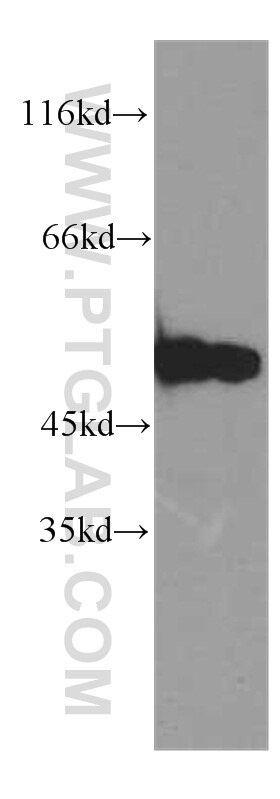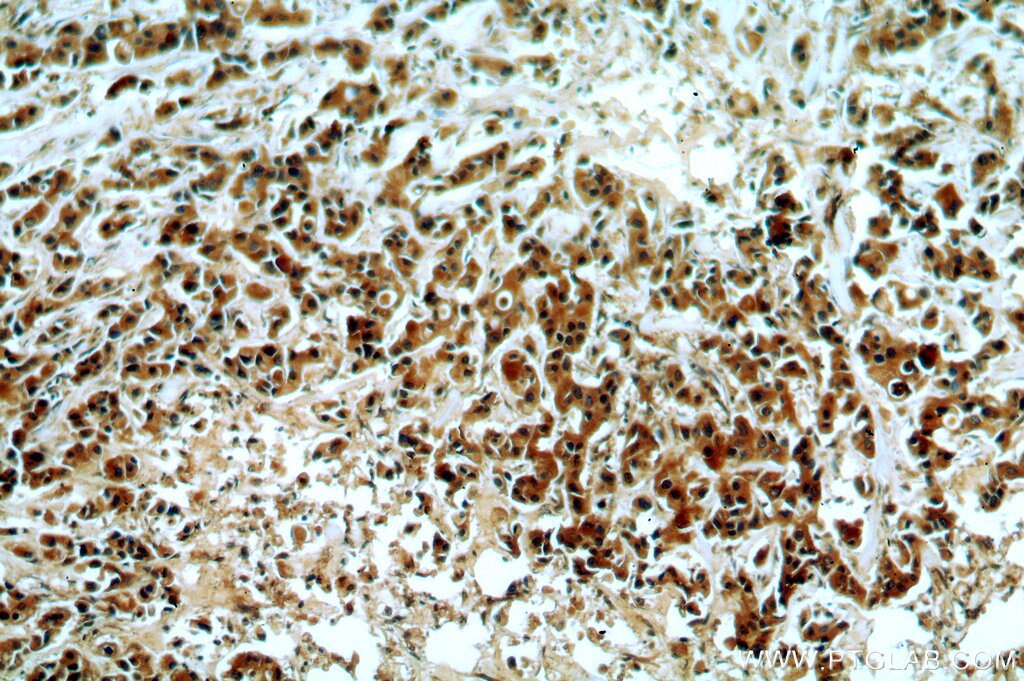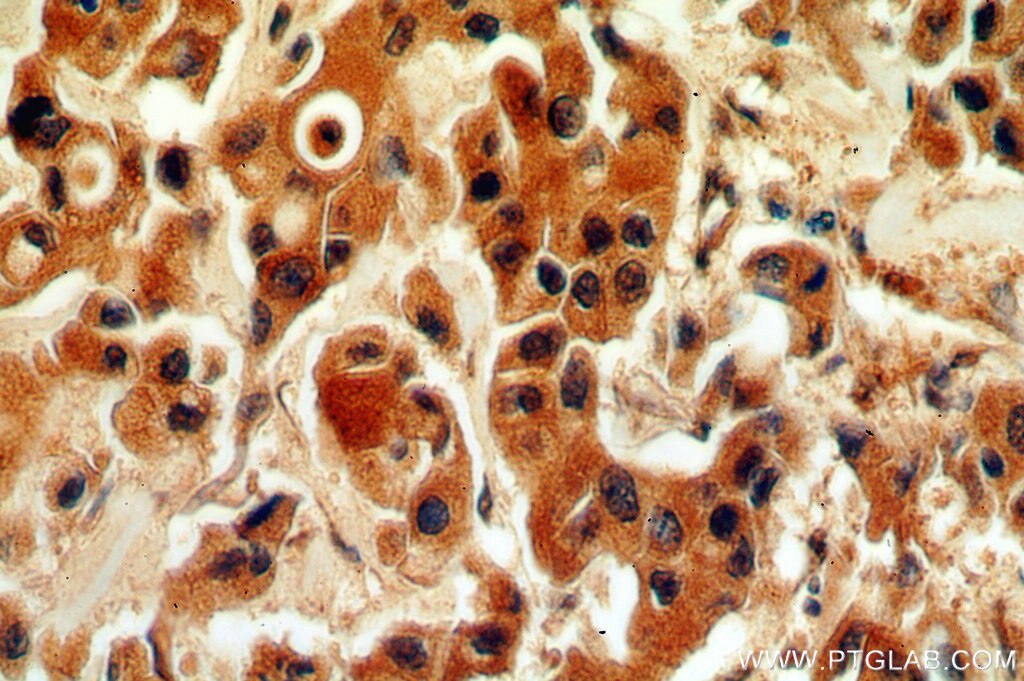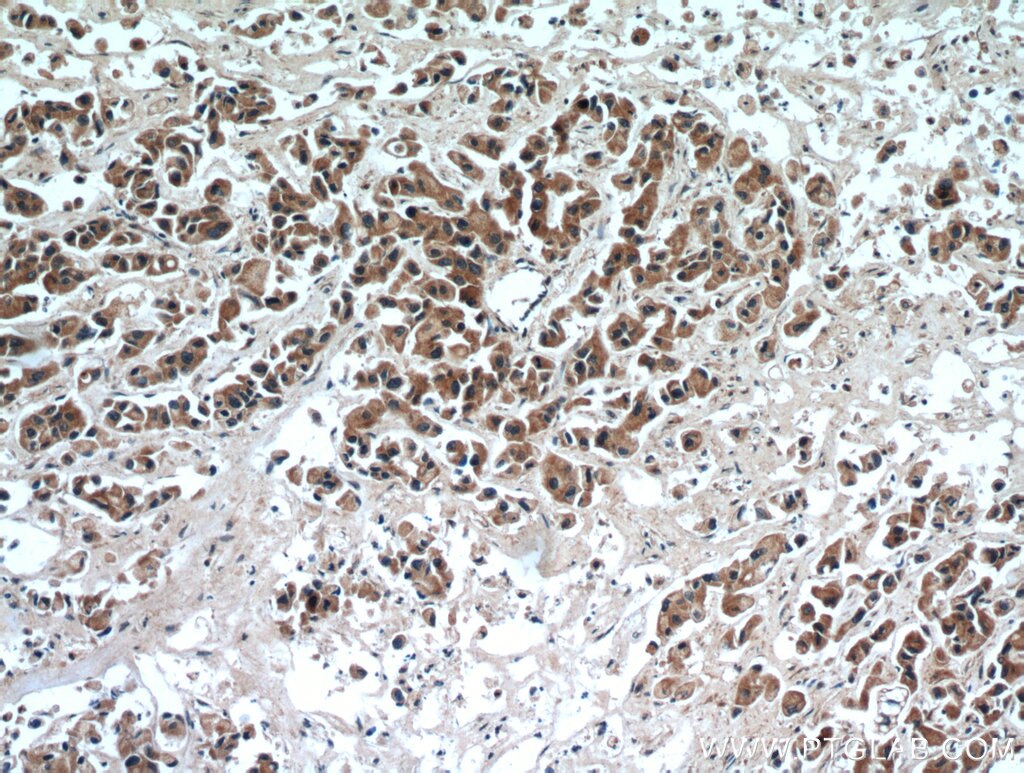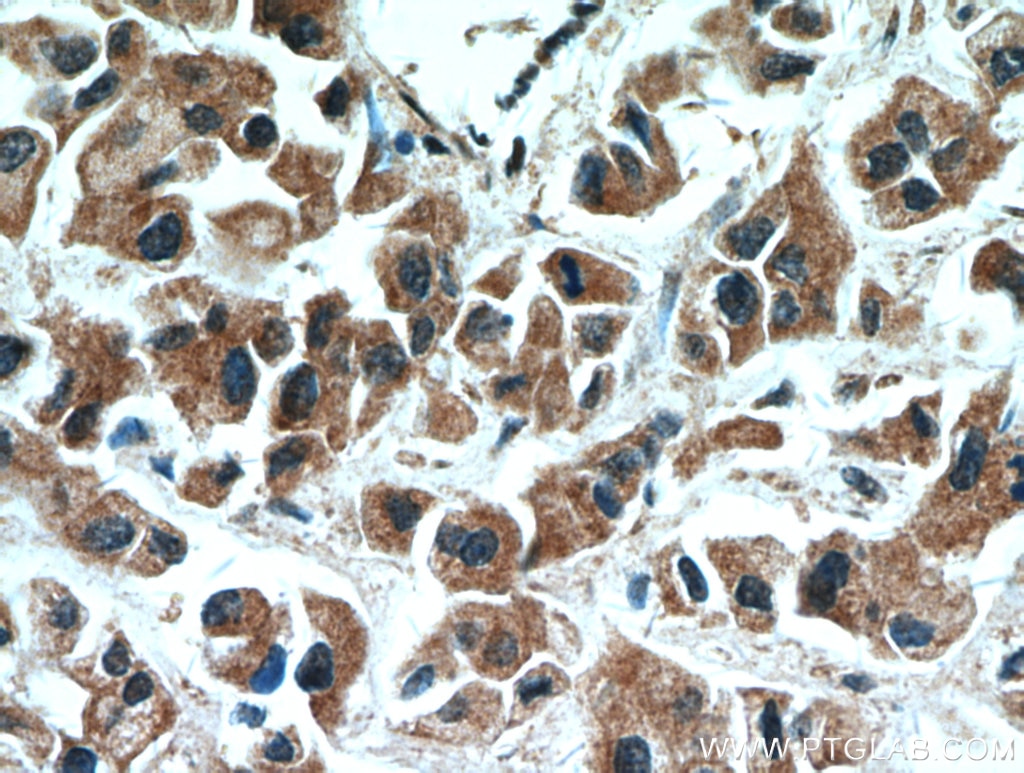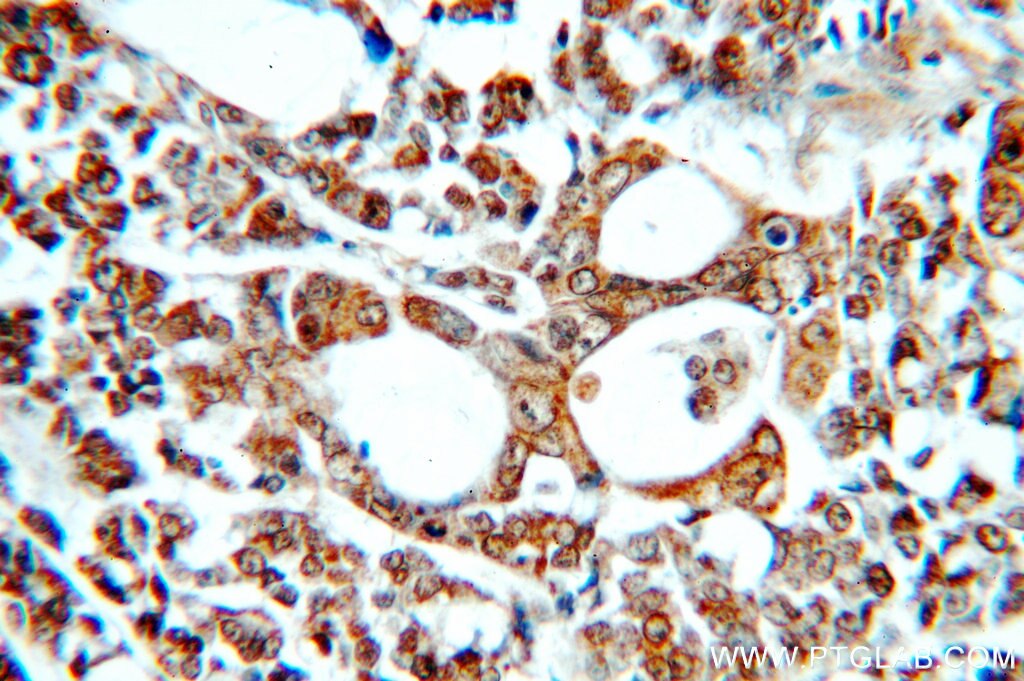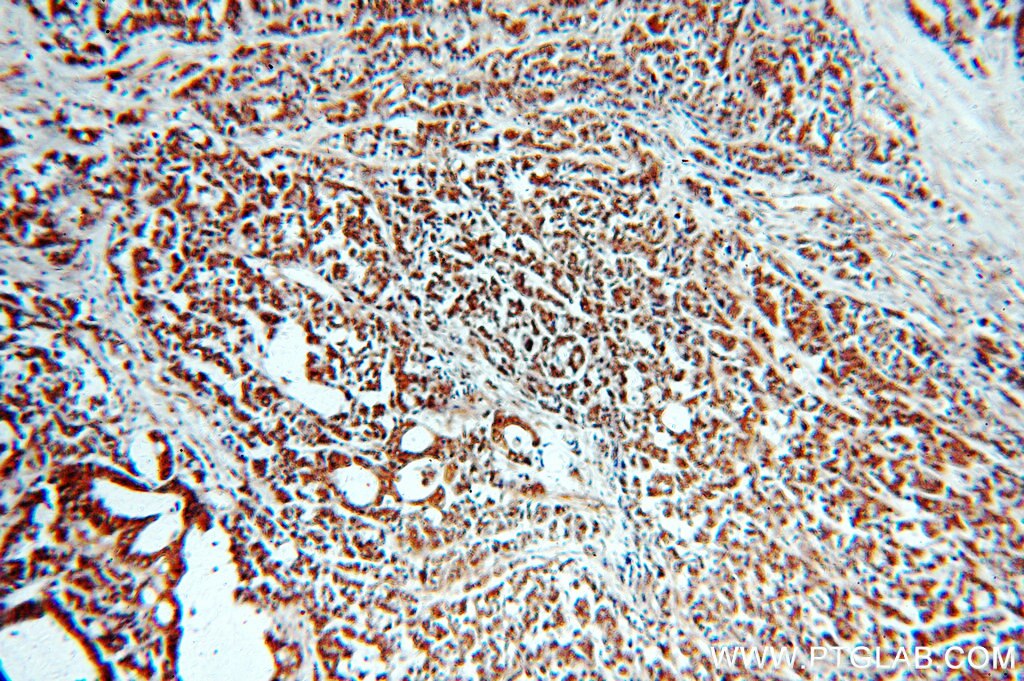Published Applications
| WB | See 12 publications below |
Product Information
51145-1-AP targets SMAD3 in WB, ELISA applications and shows reactivity with human samples.
| Tested Reactivity | human |
| Cited Reactivity | human, mouse, rat |
| Host / Isotype | Rabbit / IgG |
| Class | Polyclonal |
| Type | Antibody |
| Immunogen | Peptide Predict reactive species |
| Full Name | SMAD family member 3 |
| Calculated Molecular Weight | 48 kDa |
| GenBank Accession Number | BC050743 |
| Gene Symbol | SMAD3 |
| Gene ID (NCBI) | 4088 |
| Conjugate | Unconjugated |
| Form | Liquid |
| Purification Method | Antigen affinity purification |
| UNIPROT ID | P84022 |
| Storage Buffer | PBS with 0.02% sodium azide and 50% glycerol , pH 7.3 |
| Storage Conditions | Store at -20°C. Aliquoting is unnecessary for -20oC storage. 20ul sizes contain 0.1% BSA. |
Background Information
SMAD family member 3 (SMAD3), also named Mothers against decapentaplegic homolog 3. Receptor-regulated SMAD (R-SMAD) that is an intracellular signal transducer and transcriptional modulator activated by TGF-beta (transforming growth factor) and activin type 1 receptor kinases. Binds the TRE element in the promoter region of many genes that are regulated by TGF-beta and, on formation of the SMAD3/SMAD4 complex, activates transcription. Also can form a SMAD3/SMAD4/JUN/FOS complex at the AP-1/SMAD site to regulate TGF-beta-mediated transcription. Has an inhibitory effect on wound healing probably by modulating both growth and migration of primary keratinocytes and by altering the TGF-mediated chemotaxis of monocytes. This effect on wound healing appears to be hormone-sensitive. Regulator of chondrogenesis and osteogenesis and inhibits early healing of bone fractures (By similarity). Positively regulates PDPK1 kinase activity by stimulating its dissociation from the 14-3-3 protein YWHAQ which acts as a negative regulator.The observed molecular weight of SMAD3 is about 48 kDa.
Protocols
| Product Specific Protocols | |
|---|---|
| WB protocol for SMAD3 antibody 51145-1-AP | Download protocol |
| IHC protocol for SMAD3 antibody 51145-1-AP | Download protocol |
| Standard Protocols | |
|---|---|
| Click here to view our Standard Protocols |
Publications
| Species | Application | Title |
|---|---|---|
Int J Biol Macromol Chitosan-modified dihydromyricetin liposomes promote the repair of liver injury in mice suffering from diabetes mellitus | ||
J Ethnopharmacol Yishen Tongluo formula alleviates diabetic kidney disease through regulating Sirt6/TGF-β1/Smad2/3 pathway and promoting degradation of TGF-β1 | ||
Biomed Res Int Multifunctional Drug-Loaded Phase-Change Nanoparticles Inhibit the Epithelial-Mesenchymal Transition of Hepatocellular Carcinoma by Affecting the Activity of Activated Hepatic Stellate Cells | ||
Dis Markers Pyrrosia petiolosa Extract Ameliorates Ethylene Glycol-Induced Urolithiasis in Rats by Inhibiting Oxidative Stress and Inflammatory Response | ||
Am J Chin Med Astragaloside I from Astragalus Attenuates Diabetic Kidney Disease by Regulating HDAC3/Klotho/TGF-β1 Loop | ||
Exp Gerontol Anti-fibrosis effect and its mechanism of atractylenolide III on post-traumatic extending knee joint contracture in rats |
